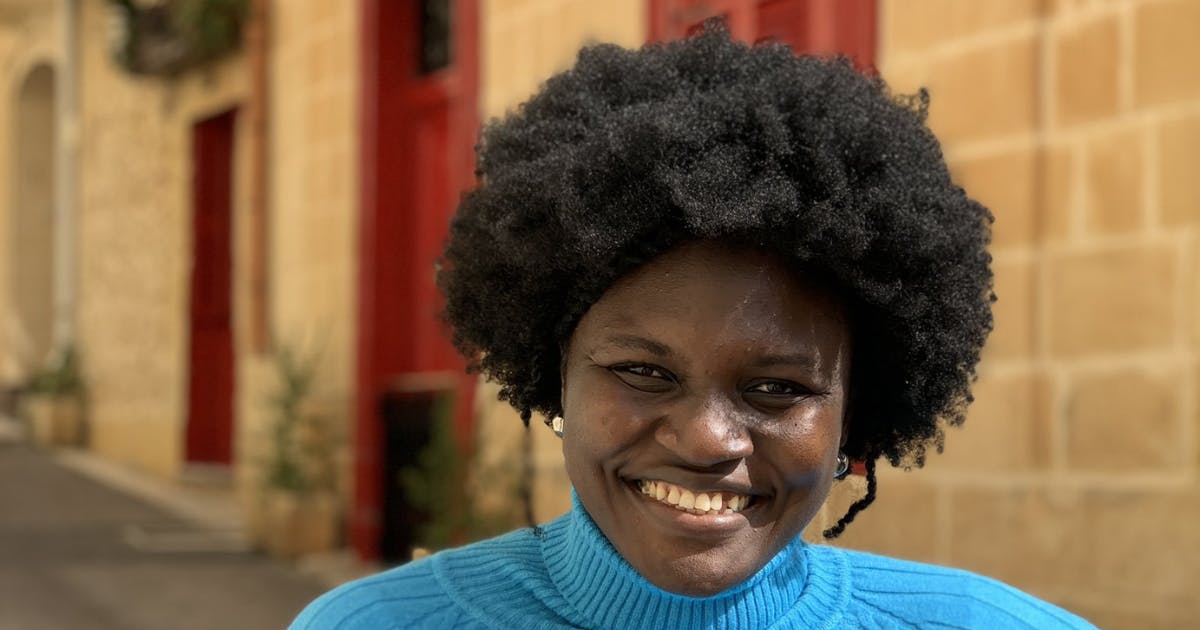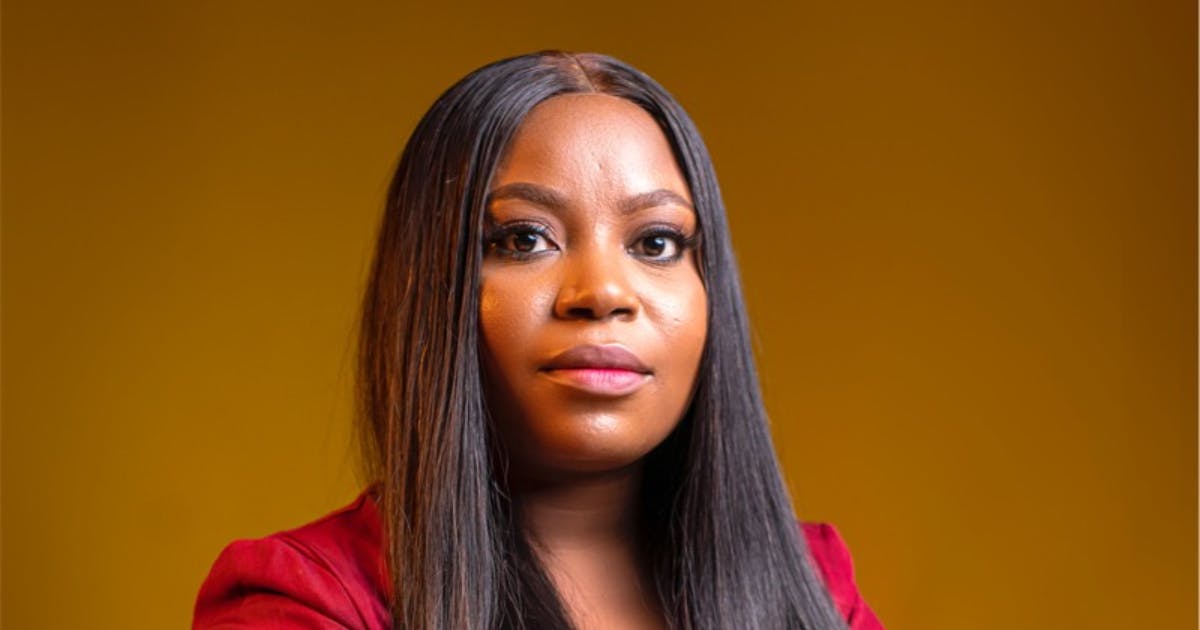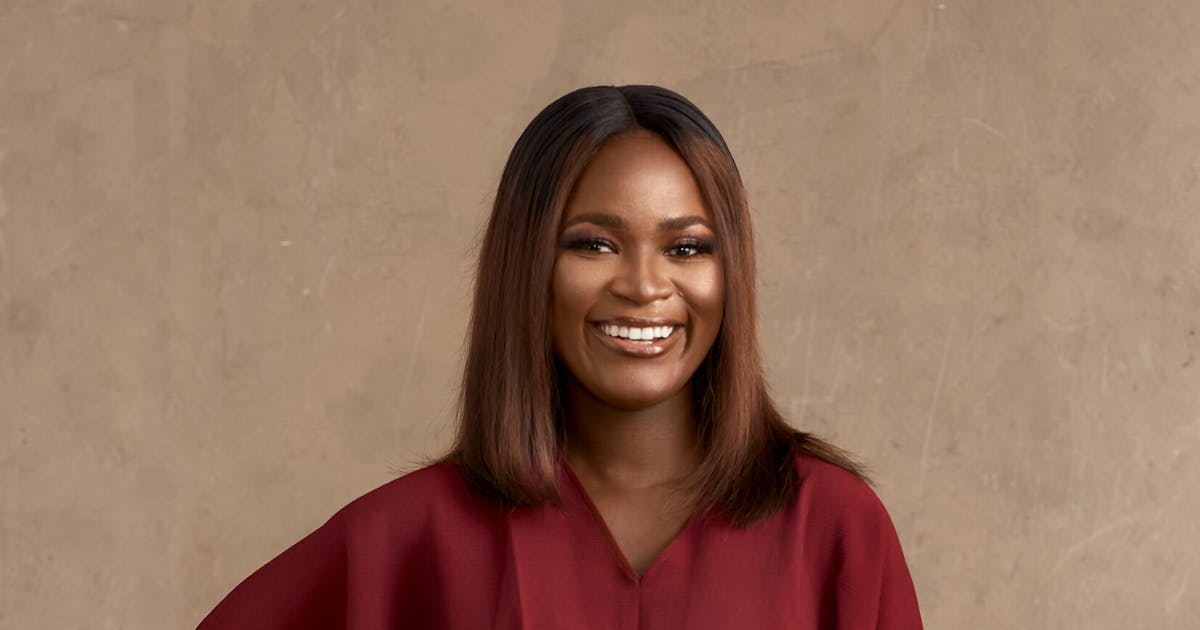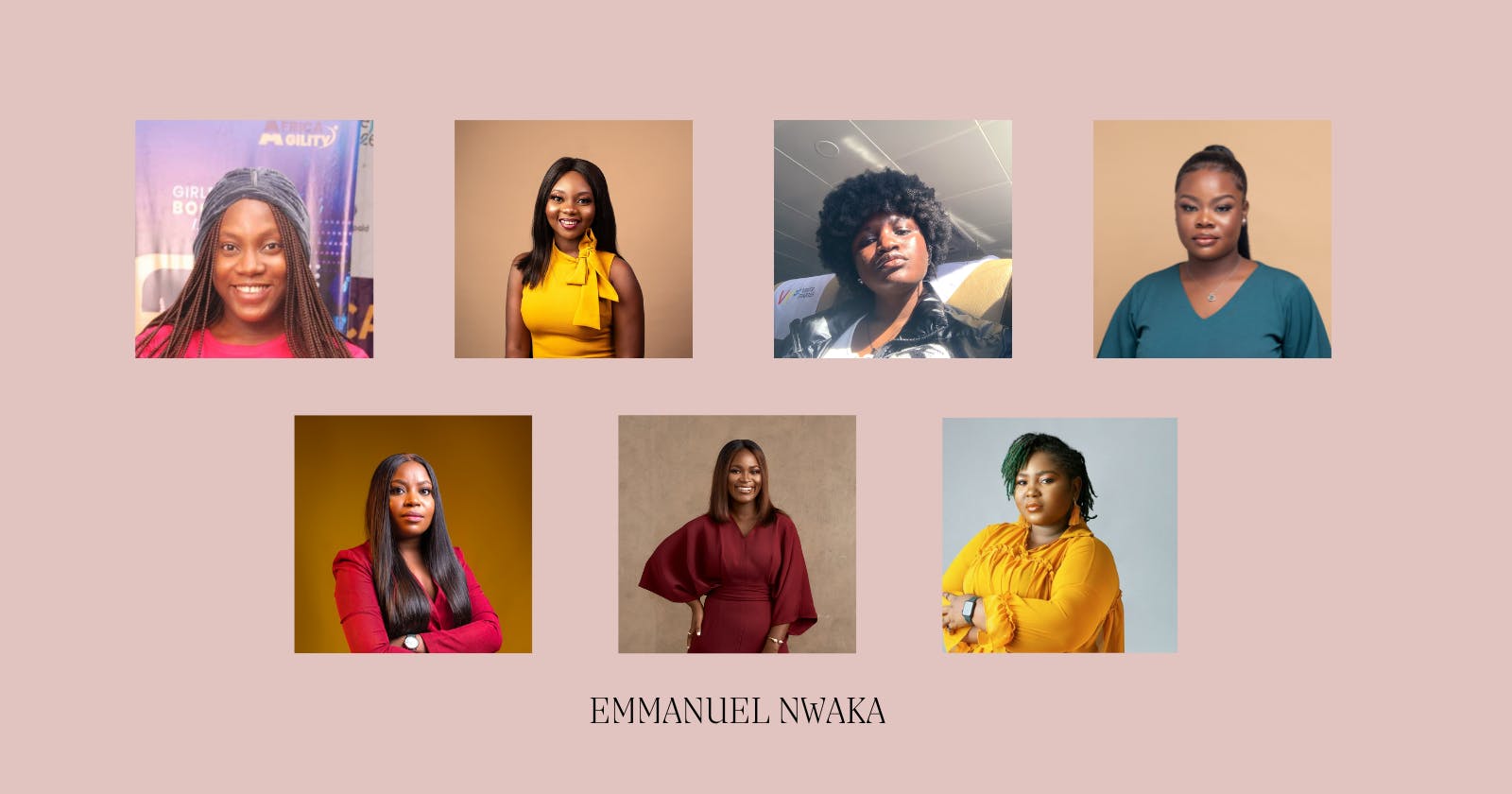On the 8th of March 2023, we celebrated International Women's Day.
This day was set aside to recognize all of the amazing women in our world. From different cultures, backgrounds, and walks of life, all women were to be honored and celebrated.
But there's been a problem.
There has been a major bias in the tech industry toward women. Some have been stigmatized and openly abused, while others have had their careers threatened.
This article addresses this issue.
We will be highlighting seven female professionals who are providing tech solutions to issues in Nigeria and across Africa. Also, we will explore some of the major challenges they faced when breaking into tech, their achievements, and valuable advice for any woman who wants to do the same.
7 Female Tech Professionals and their Experiences.
1. Maureen Ononiwu
Open Source Contributor

What's your biggest achievement?
A lot of achievements have come my way, but I would say my biggest achievement so far is getting accepted into the Linux Foundation Mentorship Program.
What were the biggest challenges you faced and how did you deal with them?
Thanks to the awesome community of people around me I do not think I remember facing any specific gender barrier going into tech but it is a known fact that women are underrepresented in tech.
Why do we see this huge gender gap in the tech industry, and how can we reduce it?
I think how women have been treated historically has trickled down into the gender stereotypes we see in the modern world. A lot of work needs to be done to change the prevalent mindsets where we live.
Do you have any advice for aspiring girls who want to join the tech industry?
Go for what interests you.
There are a lot of women-specific programs, and you should leverage the awesome work of those that have gone before us.
Additionally, joining tech communities could give you a great heads-up.
2. Adora Nwodo
Author, Cloud Engineering for Beginners and Software Engineer, Microsoft

What's your biggest achievement?
I have a lot of achievements, so it's hard to choose.
But the most important one is that I've authored two books on cloud engineering, and one of them is with one of the biggest book publishers in the world.
What were the biggest challenges you faced and how did you deal with them?
To be honest, I haven't faced any challenges because of my gender.
I've grown up and learned to navigate a life that way, from being the only girl in my family to being the only girl in some courses I chose at school. My major challenges come with career decisions.
I always slow down when those challenges come, surround myself with people who support me, and pray.
Why do we see this huge gender gap in the tech industry, and how can we reduce it?
Multiple factors contribute to the gender gap in the tech industry.
These include stereotypes, a lack of female role models, and a lack of support. Encouraging girls and women to pursue STEM education, mentorships, support groups, and the promotion of diversity and inclusion are all ways to break down these barriers.
To create an inclusive tech industry where everyone has an equal chance of success, a multifaceted approach that addresses both societal attitudes and workplace practices is required.
Do you have any advice for aspiring girls who want to join the tech industry?
To young girls, I'd say: "Dream big and follow your dreams."
Make mistakes because that's how you learn and grow. You have nothing to lose and everything to gain, so chase your dreams and live life on your terms.
3. Cynthia Peter
Founder of LikeamFive and Technical Writer.

What's your biggest achievement?
I can't say I have one biggest achievement.
Everything I have done and achieved is very important to me.
What were the biggest challenges you faced and how did you deal with them?
There is no glass ceiling to break.
I have always been one of the few women in every room, and I saw that as an opportunity rather than a challenge.
Why do we see this huge gender gap in the tech industry, and how can we reduce it?
I don't know about gender gaps in the industry.
A lot of people are just not in it for the long ride, mostly because of a lack of opportunities.
Do you have any advice for aspiring girls who want to join the tech industry?
For girls that want to go into tech, just start.
Pick something up, register for a boot camp, or anything, and just start.
4. Ada Nduka Oyom
Founder, She Codes Africa

What's your biggest achievement?
My biggest achievement so far is building a nonprofit organization focused on empowering young girls and women in Africa through technical skills.
With She Codes Africa, we can break down barriers and create opportunities for women to succeed in the tech industry. Another is the SCA Summit that was held in September 2022 with over 2000 women in attendance (hybrid), making history as the largest women-in-tech gathering in Africa.
Events like this serve as an important platform for women to raise awareness, share knowledge, and foster collaboration within the tech community at large.
What were the biggest challenges you faced and how did you deal with them?
Some of the challenges I face evolve from time to time based on situations and where I am in my career.
There was an initial lack of access to resources when I started, and I couldn't even afford to buy a laptop to practice what I was learning. I started She Codes Africa right out of university, and the challenge of “not knowing how to run a non-profit organization“ presented itself.
There was a lot of trial and error when I started, and it was giving me burnout.
As a nonprofit founder, your orientation differs from someone starting from a conventional startup school. But I have always been resourceful and have persevered through them.
One of the downsides is that I suffer burnout now and then, especially for someone juggling multiple roles at once.
Now, I’m always very conscious and intentional about avoiding burnout.
Why do we see this huge gender gap in the tech industry, and how can we reduce it?
This gap exists largely because of long-standing societal and cultural biases that portray women as less capable or less interested.
We can reduce the gap (or even close it) by increasing the representation and participation of women in STEM fields. Our society needs to challenge these biases and actively work to provide equal opportunities and support for women.
This can come through mentorship, training programs, resources, and much more.
Do you have any advice for aspiring girls who want to join the tech industry?
YOU are your biggest competitor; do not let self-doubt hold you back.
Believe in yourself and your abilities, and know that other women are rooting for you and willing to offer support along the way.
5. Rachael Akalia
West Africa Regional Marketing Manager, Yellow Card App

What's your biggest achievement?
I’d say impacting and contributing to the marketing space in such a short time.
As someone who studied a different discipline and started on a different career path, it was daunting. But, three years in, I can say it has been an enjoyable ride for me, as well as a learning curve.
From the Patricia Marketing team as a marketing executive to my current position as the Regional Marketing Manager for West Africa at Yellow Card, it has been a daunting but rewarding ride.
What were the biggest challenges you faced and how did you deal with them?
To be honest, I don’t think I faced “challenges” per se.
If we talk about barriers to entry, the door was wide open for me; I only had to walk in and bring something to the proverbial "table." If we consider equality and equity, my managers (who have all been men) trusted me to own my space, come up with creative ideas, execute them, and reap the rewards thereafter.
I had never had to prove my worth because there wasn’t a need for it.
My superiors ensured there was a level playing field for both the male and female folk, which was one thing I appreciated and never took for granted. I know it isn’t the same for every woman out there.
The aforementioned is in no way meant to invalidate the concerns of those who have indeed experienced these things or more; I just haven’t had that experience.
Why do we see this huge gender gap in the tech industry, and how can we reduce it?
In my experience, I’d say that stereotypes have contributed to the huge gender gap we now have.
These things stop women from venturing into tech, and I’m not even sure why, because you don’t see men not going for what they want. If we women want it, we should go for it unapologetically with everything within us and stop being afraid.
We have a lot of women in space who have gone ahead of us to show us that it is indeed possible.
All we need to do is pick an area of interest and just start! There are a lot of women in the tech space who can serve as mentors and role models for other women, providing mentorship, guidance, and support in navigating the industry, as well as helping create a sense of community and offering opportunities for networking and professional development.
We can also advocate for policies that support women in tech (flexible work arrangements, equal pay, etc.), as this would help create a more supportive and welcoming environment for women in the industry.
These are just a few steps we can take toward closing the gender divide in the tech space.
Do you have any advice for aspiring girls who want to join the tech industry?
You won’t know what you’re capable of until you try it out.
Push yourself and try new things until you find something you love doing because there is something for everyone. Women are using their skills and talents to build innovative solutions, create new opportunities, and empower their communities
Do your research about what the tech space is, and you will know what aligns with your transferable skills. Then start.
The last thing would be to keep learning. After you’ve found something you want to do in the tech space, never stop learning because there’s always a new trend you can leverage in the space. The world is your oyster.
6. Ibukun Akinnawo
International Expansion Lead at Smile Identity

What's your biggest achievement?
For me, it is doing my MBA from a bachelor's degree in music, joining an accelerator program, and working with exciting tech founders.
My tech career started in university, where I studied creative arts at the University of Lagos. It was in my senior year that I realized I didn't want to go into music full-time.
From writing short stories in secondary school, editing for a wedding blog, and doing virtual assistance, I wanted to consolidate all my services. This made me want to start my own business, which I bootstrapped for two years after joining She Leads Africa.
After this, I joined Paystack as an executive assistant in September 2017.
I soon graduated to become the product operations lead in April 2019. In October of that same year, I joined Kuda Bank as the business operations manager. Fast forward to the pandemic, a UK remittance company (PawaPay) reached out to me to help them expand their operations into Africa.
In September 2021, I went to Spain to get my MBA.
What were the biggest challenges you faced and how did you deal with them?
Mine was not being taken seriously enough.
Even if the decision maker was me, most clients and business owners wanted all their interactions to be done with male figures. It didn't bother me because I just kept my focus in check.
Also, if women display any form of extreme emotion when we're disrespected, we’re taken as being too "dramatic."
When a man reacts if he is disrespected, it calls for an apology, but for a woman, it's a show of being dramatic. During this scenario, I just respond by being clear and getting on the same page.
Why do we see this huge gender gap in the tech industry, and how can we reduce it?
It's better than it used to be five or six years ago, but there's still more room for improvement.
We should not focus solely on the headcount of women in an organization but on the types of roles in which they are employed, the types of salaries they earn, and the opportunities they get on the job. It's one thing to be proud of employing women, but another to refuse to hire women into senior management roles.
A great way to do this is through affirmative action.
If you have two qualified candidates that are meant to be hired for a job and these candidates are in the final stage, affirmative action is to hire the woman if she's among the best qualified. Also, highlighting in job descriptions that women are highly encouraged to apply is a great step to take.
Therefore, get more women into the funnel and hire based on affirmative action.
Do you have any advice for aspiring girls who want to join the tech industry?
Keep going.
Considering my degree in music, you would think that there wouldn't be room for people like me in tech, but that's not the case now. You can go from whatever background you came from to head any organization you can think of.
Apply for internships, don't take rejections personally, and keep shooting for the stars.
7. Omolara Adejuwon
Senior Android Engineer at Neo Financial

What's your biggest achievement?
I remember the first time I pivoted into engineering management.
I was afraid and wasn’t sure I was ready for that step. The tasks were enormous, and the company’s growth was going to be in my hands.
There were a few mistakes, and I was learning, but yeah, I didn’t do badly at all.
I'm glad to say that this single step has played a big role in my career path today.
What were the biggest challenges you faced and how did you deal with them?
When I started, there was not much representation of women in tech in Nigeria.
It was so difficult to stay on course. Many of my colleagues that started with me picked up other interests, and for many years, I was always the only one in tech teams and meetings.
On top of that, I still needed to deal with doubts from bosses and work extra hard to prove that I belonged.
One of the jobs I had in my early days paid me less than the role because they weren’t sure I would deliver. I had to work for 3 months to show that I was who I said I was.
To settle this, I had to speak up and document each of my successes so that when anyone asked, I had something to show.
Why do we see this huge gender gap in the tech industry, and how can we reduce it?
It starts with choosing a course to study at the university.
Engineering wasn’t a default or attractive option for women. The gender gap gets wider as you go higher, and then you realize that only five women (or none) are graduating from an engineering department because most of them changed courses along the way.
In many industries where a degree in engineering is required, women's chances are automatically reduced.
I think it’s getting better already. A lot of awareness is happening, and there are a few organizations that cater to introducing just women in tech, like She Codes Africa.
In my little way, I have also mentored and held hands with women who have also joined this tech train.
Many parents have read stories of successful women in engineering fields, and they can guide and support their children in studying these courses. Thankfully, there is also the emergence of non-code technical roles now. So that barrier to entry is getting lifted.
Do you have any advice for aspiring girls who want to join the tech industry?
Welcome on board!
It may look boring in the early stages, but trust me, it’s bright when you get comfortable in your field. Join a community. You don’t have to do it all alone.
Resources and Communities.
Although only 30% of professionals working in the tech sector in Sub-Saharan Africa are women, there are several initiatives and collaborations set up to increase women's participation. Here are a few of them:
Communities
The WomenTech Network is a global network supporting women in tech, especially engineers, product managers, UX designers, and digital marketers, to network, learn from each other, and identify opportunities at diversity-focused companies.
2. Women in AI
Women in AI is the pioneer community to support female AI professionals. Women in AI have over 5,000 members in more than 100 countries.
She Code Africa, founded by Ada Nduka Oyom to "create an Africa where women are equally represented across all career roles in technology," offers community and mentorship programs to African women and girls.
4. Ada’s List
Ada List is a community with a vision of moving women into tech. It has grown into a community with over 150,000 members.
5. Women in Technology in Nigeria
Created in 2002, Women in Technology in Nigeria is a registered non-profit organization and association dedicated to the advancement of women and girls.
Accelerators, Incubators and Funds
Women’s Startup Lab is a Silicon Valley-based startup and leadership accelerator for women entrepreneurs globally who have the bold vision to lead the wave of innovation and change.
She Leads Africa is an organization committed to helping young African women live their best lives both locally and internationally. You can access up to $4,000 in investment if you emerge a winner.
3. Women in Tech Incubator by Standard Chartered
Standard Chartered Bank is the pioneer of the Standard Chartered Women in Tech Incubator. This incubator is focused on accelerating female-led tech startups that are sustainability-focused and ready to make a positive impact on the world.
The Refinery is an accelerator program and a pioneer in accelerating women-led tech companies. They have awarded more than $260,000 in non-dilutive grants.
5. The EY Entrepreneurial Winning Women Programme
This program identifies ambitious women entrepreneurs and provides them with the advice, resources, and access they need to unlock their full potential.
Bootcamps and Fellowships
She Hacks Africa is a hands-on coding and product design boot camp that aims to build self-confidence in African youths as change agents and technology innovators in their communities.
This is a virtual learning mentorship program for one year to equip women with skills to build tech careers and tech-enabled businesses.
3. CodeOp
CodeOp is 100% focused on supporting women, trans, and gender non-conforming individuals who want to transition to or upskill in tech.
Afro-Tech Girls is a nonprofit organization based in Nigeria that was founded in 2015 to increase the participation of girls and young women in STEM fields.
Girls in Tech is a nonprofit organization with a focus on eliminating the gender gap in technology across the world. They currently have over 60,000 members in more than 50 chapters around the world.
Takeaways.
Women have made significant strides across the tech industry.
While stereotypes and gender biases still prevail, there are various ways to mitigate them. If you’re a woman reading this, you can succeed in tech by building your skills, seeking out mentors, finding a great community, and speaking up about unhealthy work practices.
These resources and communities we've highlighted will be helpful to you as a tech professional.
But first and foremost, consider your trajectory to decide which of them is best for you, then use them diligently. Don’t keep them to yourself. Share with other women in tech and younger girls who’ll love to work in tech.
With love,
Loved this article?
Check out my blockchain series, The Web3 Career Guide.
Support this article by sponsoring it or buying me a coffee so I can keep providing valuable content.
If you have a content marketing, content strategy, or content writing project, feel free to reach out to me or connect with me on Twitter or LinkedIn.
